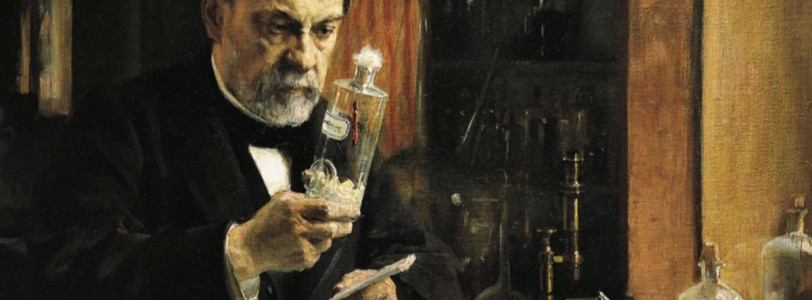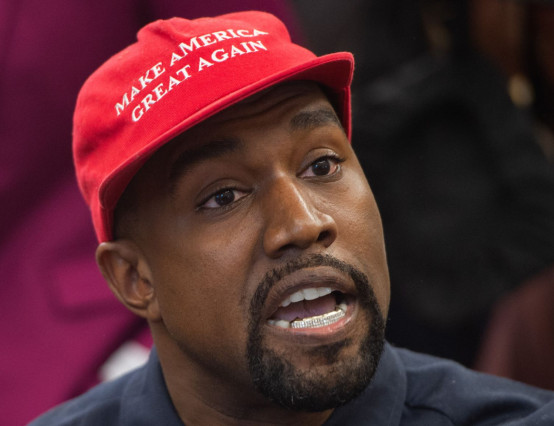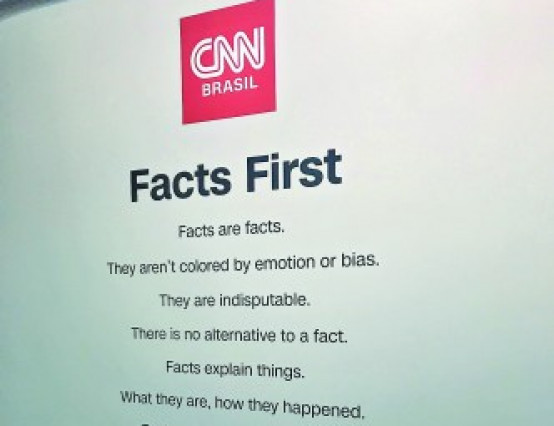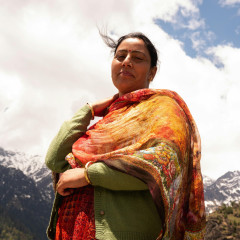We live in a ‘post-truth world’. That phrase is rather Orwellian, a reality of alternative facts and fake news, where society questions everything, and is skeptical of everyone. But if there is one title that has lost any legitimacy in our modern age it is the expert, generally defined as a person with a high degree of skill in or knowledge of a certain subject. Most conspiracy theories in our modern age are founded in this distrust in experts - scientists, economists, professors, doctors. But where does the idea of the ‘expert’ come from?
1 - The Rise of the Expert
Political economist William Davies in his book ‘Nervous States: Democracy and the Decline of Reason’ argues that the concept of the expert originated in the destructive religious wars of the 17th Century, with the bloody clash of Catholics and Protestants. Davies argues that people had to grapple with the basic question: in a world recently ravaged by hatred, how do we build a world built on trust rather than fear or anger? Philosopher Thomas Hobbes answered that it was simple - a strong government intimidating the populace would instill trust between subjects. If you were a victim of a crime, you could trust the Leviathan, or the sovereign, would punish the perpetrator. Hobbes argued this creates trust between not only the subject and their sovereign, but the subject and his peer - the fear of punishment would keep them in-line, and so more trustworthy.
The merchant classes of history had a similar crisis of trust: how can I trust this person will pay me back? Merchants and financiers experienced the same problem with the world’s monarchs - how can I trust the King or Queen to pay me back the money I lent them to raise an army? Even scientists had this issue, how can a scientist trust the observations made by a peer they have never met? The answer to all these trust gaps is the expert.
Davies writes, “Pioneering communities of merchants and gentlemen introduced strict new rules for how their impressions should be recorded and spoken of, to avoid exaggeration and distortion, using numbers and public record-keeping.” Examples of this concept are evidenced all over history. Merchants began extensive book-keeping, which could be scrutinised by anyone looking to do business with them. The Bank of England was formed to bridge another trust gap, how could lenders know the Crown would pay them back? The Monarchy crafted extensive record-keeping techniques to convince financiers that they would honor their debts. Even Coffeehouses are examples of this, where numberphiles would meet to discuss issues, and solve them objectively with stats, facts, and logic. Davies says that “...In the 1670s, the suggestion that political questions be settled on the basis of numerical facts was radical” whereas nowadays it is an obvious necessity.
2 - The Fall of the Expert
Unfortunately sentiment towards experts has changed. The trust has been broken due to the idea that you should only believe what your own eyes tell you, a noble principle but often a problematic one. This is an overt rejection of expertise, or as Davies remarks, “To trust in science is to trust in the capacity of people to report and record things in adequate fashion ... We’re willing to ‘take their word for it’, rather than constantly refer back to the thing itself.” But the marked change in experts has also shown itself in a change in conspiracy theories. Where old conspiracy theories may try to make sense of life-changing events, attempting to help bring order or clarity, modern conspiracies are exactly that, all conspiracy and no theory. As Professor Nancy Rosenblum states, “The purpose of conspiracy theories is no longer to explain reality or offer some accounts of the world; instead, the point is to erode trust in public figures or institutions.” For Rosenblum the point of modern conspiracies is to erode faith in institutions, specifically the medical and scientific establishment.
This lack of trust permeates our society, and not all for bad reasons. Governments are full of so-called “experts” like Chief Advisor Dominic Cummings, touting solutions to modern problems, all in hopes to serve their own political or personal agendas. All things therefore should be analysed critically and with skepticism, because experts, like all things, come with problems.
Many experts will point towards metrics that make them look better, and often have political agendas or simply fail to see the damage of their policies. Davies explains, “The resentment of elites that we see around us today is fueled by a sense [that the promise of experts] is now bogus ... Revelations of their personal moral failings, via media exposés, leaks, and social media searches, make the distinctions of these figures ever harder to sustain. Their claim to represent our interests becomes nothing but a shroud for their own political agendas.” Essentially, the distrust of experts is so complex because it is sometimes justified and sometimes not.
However, Rosenblum argues that it is not just the trust in institutions and science that’s at risk, but our trust in each other. Older conspiracy theories generally targeted and criticised those at the top; governments, businesses etc. Modern conspiracies target both the top and the bottom: survivors of school shootings are labelled ‘Crisis Actors’, Scientists and teachers are called ‘shills’, and so on. Davies argues that our lack of trust in experts, elites or each other has led to a Hobbesian war of all against all (not that we want to murder each other as Hobbes argued, but rather that we distrust the basic premise of our so-called ‘opponents’). It’s led to arguments now being places to achieve victory over others, rather than reveal truth, you win an argument, politicians ‘destroy’ their opponents. The gamification of truth doesn’t benefit anyone. Some may believe it allows for a market where truth and fiction are more easily distinguished, but the opposite is true.
3 - Pseudoscience
There is a prime example of how experts and conspiracies can crossover. The pandemic has sparked a lot of speculation and one of the most prominent, albeit nonsensical ones, is that 5G towers caused Covid-19. But let’s take this conspiracy back to its root, to one man: Thomas Cowan. Like any reputable ‘expert‘, Cowan published his claims on YouTube - garnering half a million views, before being removed for going against YouTube’s community guidelines. His idea that 5G towers caused our pandemic has been promulgated by various celebrities such as Woody Harrelson (who are by no stretch of the imagination medical experts), and in the UK, people have torched several 5G towers for their alleged role in the pandemic.
But what did Cowan actually claim, we know he said that he believed 5G towers caused the pandemic, but how exactly? Cowan believes that when our cells get sick they excrete toxins, and 5G is allegedly poisoning those cells leading to them, in his ‘expert’ words, “Pooping out poisons.” In Cowan’s many YouTube videos he makes 4 main claims: (a) viruses do not cause diseases (b) the Spanish Flu that killed tens of millions was caused by the electrification of the Earth and waves being produced by radios (c) because we are ‘electrical beings’ other major outbreaks in the last Century were caused by the aforementioned ’electrification’ (d) vaccines are bad. Cowan seems to have forgotten (or rather chooses to ignore) the fact that there have been diseases and indeed massive pandemics such as the Bubonic Plague, small pox, or measles, which all occurred prior to the discovery of electricity. However, proving that diseases existed before electricity does not disprove that electricity causes diseases, yet Cowan’s argument simply seems to be that all that is natural is good. Take for example when he spoke about how humanity used to drink more ‘pure’ water, yet again conveniently forgetting (or as mentioned intentionally ignoring) the thousands of years people died from drinking water teeming with harmful pathogens.
One may think to themselves at this point ‘how do people fall for this, and believe a random guy who uploaded a conspiracy with almost no accurate scientific theory to YouTube?’ And you may be quick to respond ‘People are just really stupid!’ But alas that is not the case. The kind of conspiracy Cowan is promoting is a form of pseudoscience, and pseudoscience for all it’s fallacies is rather anatomically complex. See pseudoscience often preys on the fact that its victims are educated, giving us ideas that cater to our relatively basic understanding of science taught in schools. The success of pseudoscience does not hinge on the idiocy of people, but rather the fact that not everyone is capable of understanding every single scientific principle that intersects with their lives.
This is exactly what Cowan utilises to spread his 5G tower conspiracy. Pseudosciences often look like real science, they trot out ‘experts’, real people with M.D.s and PhDs from actual universities, such as Cowan, a medical doctor (graduating from Michigan State University College of Human Medicine) and vice President of the Physicians Association for Anthroposophical Medicine, as well as a founding board member of the Weston A. Price Foundation. But if one thing is already evident - Cowan is NOT an expert. Yes - he has the titles and the criteria that may make you believe he is an expert, and hence adopt his claims as fact, but a greater analysis shows how his claims are dangerous pseudoscientific nonsense.
Pseudosciences consist of two main things: a misunderstanding (or manipulation) of context, and large interpretive leaps of scientific theory. Let’s look at a real scientist, an actual expert, called Louis Pasteur. Pasteur’s experimentation not only gave us ‘pasteurised milk’ but the formation of the Germ Theory of Disease -the idea that microorganisms or pathogens can cause disease - the same theory that Cowan seems to be denying by stating that viruses do not cause diseases, but rather electricity does. Pasteur’s scientific rival, a man with ten times more scientific knowledge and expertise than Cowan, Robert Koch, was also looking into microorganisms. Koch’s work in microbiology is how we are able to discern the difference between the standard flu and viruses such as Covid-19. In his videos Cowan cites Koch to support his claims that the Coronavirus was not caused by...a virus. Koch and his peers were faced with the question of how a scientist could determine, out of all the millions of microorganisms in the human body, which one is making us ill. Koch sought to resolve this conundrum by coming up with his four postulates:
1) We can suspect a specific microorganism of causing an illness if we can find that organism in all the cases of that illness (this isn’t enough though as there are many microorganisms in our bodies).
2) One has to be able to isolate this specific microorganism and grow it in a pure culture.
3) The cultured microbe will cause a disease in a healthy host (although scientists tend to use healthy cells or animals rather than intentionally making others ill nowadays).
4) You are able to watch as your newly infected organism produces enough of the virus or bacteria for you to once again isolate it in a petri dish, thus reducing the search.
But how does Cowan use Koch’s otherwise sound scientific process to make an absurd claim that 5G towers cause Covid-19? Simply, through the two limbs of pseudoscience: a manipulation of context and large interpretive leaps of scientific theory. Cowan claims that in Boston during the Spanish Flu pandemic, scientists extracted mucus from infected people and injected them into healthy people, eliciting no symptoms (disqualified by Koch’s third postulate), except the paper referenced by Cowan, ‘Experiments to Determine Mode of Spread of Influenza’ by Milton J. Rosenaw, M.D. sees the author worry he is carrying out the experiment all wrong. But Cowan cites a real scientific study without the sufficient context simply to give an air of legitimacy to an otherwise ridiculous claim. The findings into the origin of the Spanish Flu came about from a community of scientists rather than one lone study or researcher as Cowan seems to imply.
Koch’s postulates are still used today, although they are not perfect. For instance, such as in the Covid-19 pandemic, some people contract the virus but show no symptoms. Scientists often debate how to best tweak Koch’s postulates - modern techniques such as sequencing the genome of a suspected virus and comparing it to genetically similar viruses (like Covid-19 to SARS) can help us identify the microbial-causes of an illness, an idea not even dream-able in Koch’s time. But people like Cowan who play fast and loose with scientific principles will make claims that Koch’s postulate assert that 100% of people with the virus or bacteria should have symptoms, an idea not even Koch believed!
Put frankly, Dr Thomas Cowan is just another snake oil salesman who points to real scientific research or theory crafted by actual scientific experts to imply that he is correct, and is himself an expert. And although he is a medical doctor, a person who should have the medical context to know why his claims are obviously false, it is worth noting that most doctors are not research scientists - their training does not focus on critical thinking or research techniques, and so when speaking on matters like these they should not be branded as ‘experts’ no matter how hard they try to convince you they are.
This is a part of the reason you can see countless people with medical degrees claiming ridiculous things about vaccines or Covid-19: they think simply being armed with the certification and facts in a vacuum will lead to the right conclusion.
Let’s take a look at another piece of ‘evidence’ Cowan uses to support his 5G tower conspiracy. He claims that 5G was launched in Wuhan, China were the virus is thought to have originated. Now aside from that being blatantly false as 5G originated in parts of South Korea and the US first, it suggests that Cowan is trying to use correlative evidence to support his claims, and as any student can tell you, correlation does not equal causation. That’s not to deny that correlation isn’t important evidence occasionally, but this correlative evidence is contrary to Cowan’s statement, as places without 5G are still experiencing Covid.
Cowan is a prime example of how human bias enters the scientific process. Science is not, as Cowan and his fellow pseudoscientists would have you believe, an individual process were one scientists does a study and single-handedly changes the game, but is done in cooperation with other scientists through peer-reviews and the such. Science is a web of knowledge, not individual facts or studies separated from their context. That is what makes science robust. So when Cowan points to the basics of virology to forge a hoax as this, it is only the context of his evidence that can save us.
If one needs better evidence of Cowan’s lack of expertise and failed understanding of the cooperative nature of science, look no further than the time that Cowan had his medical license put on probation for 5 years after he suggested a patient with breast cancer should take a drug that has never gone through any safety trials, without even suggesting to the patient that it may be dangerous, and without consulting their medical records or making an in-person examination. The irony of Cowan condemning 5G for being a technology with unknown consequences whilst recommending drugs with unknown side-effects is hopefully not lost on anyone.
But besides the danger that Cowan’s claims pose in terms of public health, he and his ilk represent the loss of trust in experts. There are thousands upon thousands of people like Cowan who paint themselves as experts while simultaneously making the most amateur errors. It’s these sort of people who give the real expert a bad name, who bring down the names of real scientists like Koch and Pasteur, who repulse people from bastions of truth, who lead to governments ignoring the medical advise of actual experts (as has been the case in many countries during the Covid-19 pandemic). Michael Gove said during the Brexit campaign of 2016 that Britain has allegedly “had enough of experts” but it is evident (especially with Gove in a position of power) that we need them. To quote Professor Timothy Snyder, “If you want to rip the heart out of a Democracy, you go after facts. That’s what modern authoritarians do. Step 1: you lie all the time. Step 2: you say it’s your opponents and the journalists who lie. Step 3: everyone looks around and says, ‘what is truth? There is no truth.’ Then resistance is impossible and the game is over.”








0 Comments